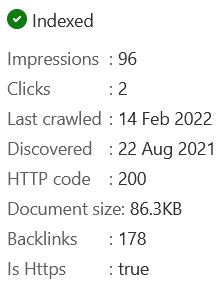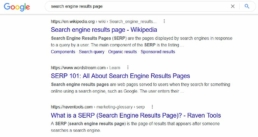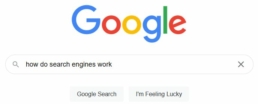When you enter a query into a search engine, how does it know which websites to show you? How do they determine the order of the results? And how can you make sure your website appears as one of the top results? In this blog post, we will discuss how search engines work and how you can optimize your website for better visibility.
What are Search Engines?



A search engine is a website that allows users to enter queries and return results. Search engines are the primary way that people find information on the internet.
There are many different search engines, but the most popular ones are Google, Bing, and Yahoo. These three search engines account for more than 90% of all searches on the internet.
Some less common alternative search engines include Yandex, which is the primary search engine for Russia, and Baidu, which is the primary search engine for China.
How Does a Search Engine Work?
Search engines can work in a few different ways, but most search engines use a process that involves three steps: crawling, indexing, & ranking. This is the process that Google, the world’s largest search engine, uses to provide search results. Understanding how search engines work is essential to finding success with your online business.
Crawling

Search engines discover new content through a process called crawling. Crawling is the process of visiting websites and downloading their content. A crawler, also known as a spider or bot, is a program that visits websites and downloads their content. Crawlers are sent out by search engines to find webpages so that they can potentially be included in the search engine’s results.
Typically search engines crawl websites on a regular basis. For example, Google crawls websites every few weeks. However, if a website is updated frequently, the search engine may visit more often.
Webmasters can also request crawling of their website using search engine tools such as Google Search Console. This helps expedite the crawling process and ensure that the website’s content is included in the search engine’s results.
Indexing


After a website has been crawled, the content is then indexed. The index is a database of all the websites that have been crawled and their content. Indexing involves extracting the important information from each webpage so that it can be included in the relevant search engine result page.
Just because a webpage has been crawled by a search engine doesn’t mean that it will be included in the search engine’s index. Some common reasons websites are excluded from a search engine’s index include:
- The website has low quality content
- The website has been penalized by the search engine for violating its guidelines
- The website is blocking search engine bots from indexing its content

Ranking



After a website has been crawled and indexed, the search engine will then determine how to rank it in its results. Search engines decide which web pages are most relevant to a user’s search query and rank them accordingly.
Search engine algorithms use a variety of ranking factors to determine relevant results. For example, Google’s algorithm has over 200 ranking factors that help determine the most relevant websites.
What Happens When You Search Something?



When you enter a query into a search engine, the search engine will look at its index to find all of the webpages that match your query. It will then rank those pages according to how relevant they are to your query.
The search engine will then return the results in its results page. Search engine algorithms determine the order of the results pages. The position of each of the ranking web pages is based on it’s relevance to the query intent.
What are Search Results?
A search engine result is a web page that is returned after a user’s search query. The main purpose of a search engine is to return the most relevant web pages for a given query.
There are many different types of search results, but the most common ones are websites, images, and videos. Each type of search has its own results page and ranking factors.
Factors That Influence Indexing & Ranking
Indexing and ranking are two of the most important aspects of how a search engine works. They are what determine how relevant a website is to a user’s query and how it is ranked in the search engine results pages.
There are many factors that influence indexing and ranking. Some of the most common ones include:
Page Speed

The speed of your website can affect how well it is indexed and ranked by a search engine. If your website is slow, the search engine may not include it in its results.
This is because slow web pages make the user experience worse. And since search engines want to provide the best user experience possible, they will typically rank faster websites higher in their results pages.
Crawl Errors

If your website has crawl errors, the search engine may not include it in its index or results. This is because crawl errors can indicate that a website is broken or not functioning properly.
The search engine will typically only include websites in its results that are error-free. So, if you have any crawl errors on your website, make sure to fix them as soon as possible.
Internal Links
An internal link is a link on a website that lead to other pages on the same website. They are important because these links help search engines understand the structure of a website.
When search engines crawl a website, they will follow the links pointing to other pages on that website. This helps them index those pages and rank them accordingly.
Backlinks
Backlinks or inbound links are links from a different website that lead to your website. They are important because they help increase a website’s authority and visibility.
Search engines use backlinks as a ranking factor to determine how relevant a website is to a user’s query. The more high-quality backlinks a website has, the higher it will rank in the search results.
This is an important ranking factor because it indicates that other websites think your website is valuable and relevant to their users. Search engines take this into account when determining if your website is a trust worthy source of information.
Page Content
The content of a website or web page is one of the most important ranking factors. Search engines look at the content of a page to determine how relevant it is to a user’s query.
They also use it as a way to determine if a website is trustworthy. If the content on a website is not high quality, the search engine will likely rank that content lower in their results.
This is because search engines want a good user experience and less relevant content can harm that experience. So, if you want to rank your website higher on the search engine results page, make sure to have high-quality relevant content.
XML Sitemaps



XML sitemaps are files that contain the URLs of all the pages on a website. It is important because it helps search engines index your website’s pages more efficiently.
When you create an XML sitemap, you are telling the search engine about all the pages on your website. This allows them to crawl and index those pages more efficiently than trying to follow an internal link to every page.
Webmasters can submit updated XML sitemaps to search engines whenever they make changes to their website. This will help ensure that the search engine indexes those pages as soon as possible. XML sitemaps can be submitted to Google through their Search Console tool.
Domain Authority
Domain authority is a metric that measures how authoritative a website is. Domain authority isn’t a specific Google ranking factor, but it is a good indicator of how well a website will rank in the search results.
Domain authority is determined by a number of factors, including how many high-quality backlinks a website has, how well the website is structured, and how much content it has. The higher a website’s domain authority, the better it will rank in the search engine results page.
Mobile Responsiveness



A website’s mobile responsiveness is another important ranking factor. Mobile responsiveness is how well a website performs on different devices, such as smartphones and tablets.
Google announced that they would be using mobile responsiveness as a ranking factor in their search results starting in April of 2015. This means that if your website isn’t responsive, it will likely rank lower in organic search results.
Website Security
Website security is another important factor that Google uses to rank websites. It is also essential factor of what makes a good website. Security is determined by how well a website’s defenses are against hackers and other malicious actors.
Google has been increasing their focus on website security in recent years. They even announced that they will be using website security as a ranking factor. This means that if your website is insecure, it will likely rank lower in the search engine results page.
Not sure if your website is secure? One easy security factor to check is an SSL certificate. An SSL certificate is a security certificate that verifies that a website is secure. You can see if a website has an SSL certificate by looking for the little padlock icon in the address bar. If a website doesn’t have an SSL certificate, it is not secure and you should not enter any personal information on that website. You will also want to use secure hosting for your website. To learn more about where websites are hosted and why it matters, check out our article from last week.
Frequently Asked Questions About Search Engines
Search engines are often a mystery to people who are not familiar with how they work. In this section, we will answer some of the most common questions about search engines.
Do all search engines work the same way?


No, not all search engines work the same way. Each search engine has its own algorithm that determines how websites are ranked in their results. Most search engines use similar ranking signals. However, understanding the different ways they function can help you optimize your site for each search engine.
In fact, not all search engines even follow the crawl, index, rank process to determine their results. For example Duck Duck Go, a privacy driven search engine, actually uses Bing’s search results as an important ranking factor. One the best ways to rank on Duck Duck Go is to optimize your website for Bing.

How does a search engine determine which websites to show in response to a query?
When a person enters a query into a search engine, the search engine looks at its index to find all of the websites that match the query. It then ranks those websites based on how relevant they are to the query.
Search engines can’t rank your website if it hasn’t been crawled and indexed yet. Remember search engines only display results in their index, they don’t crawl the internet for every single search query.
How can I make sure my website appears as one of the top ranking results?
There is no one answer to this question as ranking factors vary from search engine to search engine. However, there are a number of things you can do to improve your website’s ranking in the search engine results pages (SERPs).
Some of these things include optimizing your website for keywords, creating high-quality content, and building backlinks. If you are seeking to rank higher on Google, be sure to check out our article on search engine optimization for Google.
How can I speed up my website page crawling and indexing?

If your website is not being crawled and indexed as quickly as you would like, there are a few things you can do to speed up the process.
One thing you can do is make sure that your website’s robots.txt file is set up correctly. You can also submit your sitemap to Google so they know all the pages on your website. These should be your first two steps since they are simple to complete and extremely important.
If you want specific insights on why your website isn’t being crawled and indexed, be sure to check out Google Search Console or Bing Webmaster Tools. Both webmaster tools can provide you with details on improving your website performance for organic search.
How can I tell if search engines are crawling & indexing my website?
The best way to tell if search engines are crawling and indexing your website is to use Google Search Console or Bing Webmaster Tools. These tools will provide you with information on how many pages of your website have been crawled and indexed, as well as any errors that may have occurred.
You can also use a tool like Screaming Frog to crawl your website and see how many pages have been indexed and check for broken links. This will help you fix issues affecting your website’s SEO.
Wrapping Up
So there you have it- a high level overview of how search engines work. Granted, this is a beginner’s guide, but now you should have a basic understanding of the process. Keep in mind that search engine algorithms are constantly evolving, so what we know today may change tomorrow. But as long as you keep these basics in mind, you’ll be well on your way to improving your website’s ranking and visibility. And who knows? Maybe one day your site will show up at the top of the search results for your target keywords!
If you want your business to rank higher on the search engine results page, but don’t know where to start, give us a call! Don’t settle for poor rankings on Google, set your business up for success. We offer search engine optimization services that can help you improve your website’s ranking and visibility.
